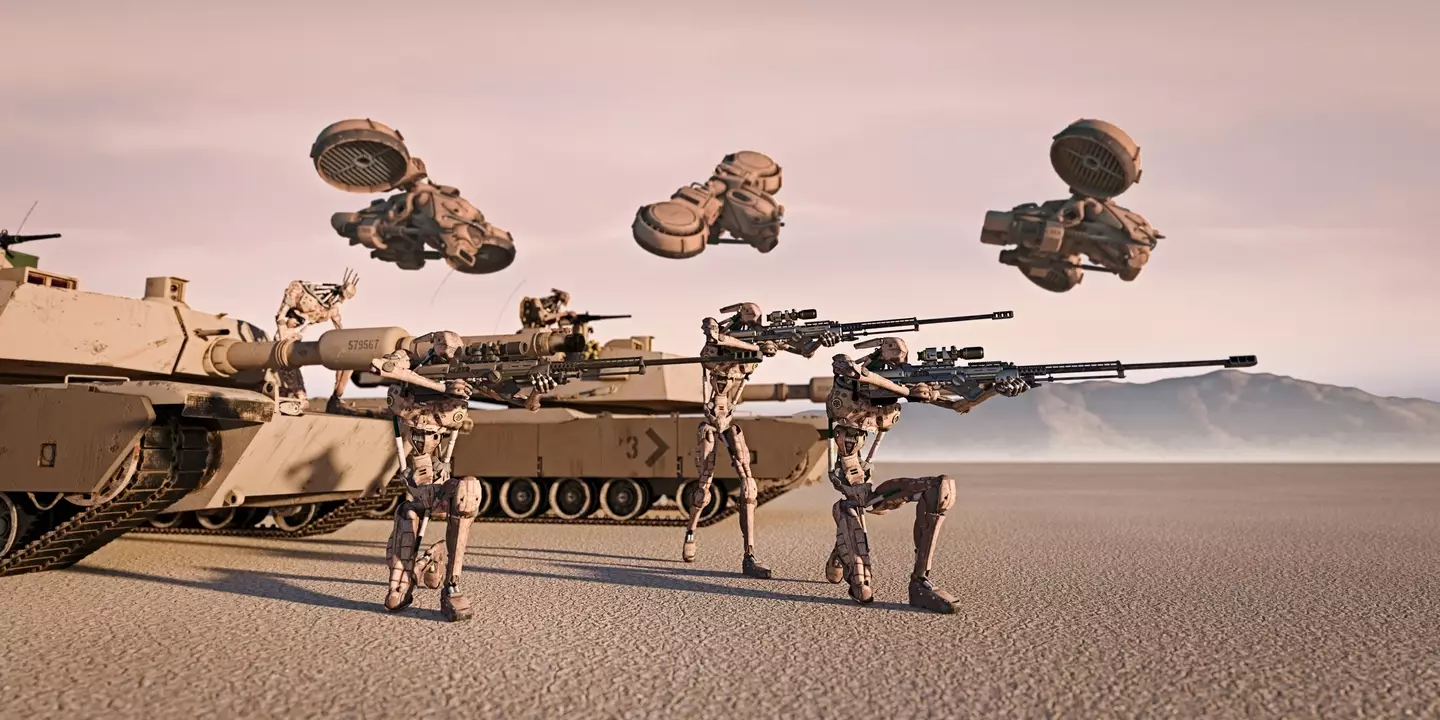
Although some might think it's pretty obvious by now, it looks increasingly likely that the wars of the future could be fought online as well as on the traditional battlefield. The geopolitical crisis is heating up, and whether it's the USA, Russia, China, or someone else that triggers it, experts and civilians alike are concerned that we're on the cusp of World War III.
While many fear WWIII will be here within the next 10 years, others think we're already in the midst of it and don't even know it yet.
Even though World War III could bring back some unexpected technology from yesteryear, the evolution of artificial intelligence and the increase in the use of weaponized drones suggests that we're being steered into a technological battlefield.

Advert
These concerns were recently shared on Steven Bartlett's "Diary of a CEO" podcast, with tech entrepreneur Amjad Masad explaining how both the USA and China are likely going to cut corners if we head into a mythical WWIII: "What really scares me is autonomous weapons...You can imagine autonomous drones being trained on someone's face, and you can send a swarm of drones, and they can be this sort of autonomous killing, assassination machine."
Saying he can picture it as a 'country versus country' technology, Masad continued: "It can also become a tool for governments to subjugate the citizens, and people think we're safe in the West, but I think the experience with co showed that even the systems in the West can very quickly become draconian."
Entrepreneur Daniel Priestley added that he's heard about technology in Iran that can detect whether women are driving without wearing their hijabs, which is confirmed as the Nazer (surveillant) app where you can even report others. He said this kind of tech acts as a police officer, a judge, and a lawmaker, concluding: "It's the judge, jury, and executioner." Similar facial recognition cameras have supposedly been placed in London and across Wales.
Evolutionary theorist Brett Weinstein chimed in on the conversation, admitting he has the same concerns about autonomous weapons and saying: "I also think this doesn't have to occur in the context of war or even governmental oppression.
“It is perfectly conceivable that this drops the price of an effectively undetectable or an unprosecutable crime, and maybe economic moats return in the form of people taking out their competitors or anybody who attempts to compete with them using an autonomous drone that can't be traced back to them."
Barlett points out how both the USA and China are heavily investing in AI-powered weapons amid fears that the other might get their first.
All of these come after The Guardian referred to AI weapons reaching an 'Oppenheimer moment' that compared it to J Robert Oppenheimer’s development of the atomic bomb during WWII. There's also the fact that tech and surveillance company Palantir has invoked the Oppenheimer analogy with CEO Alex Karp.
Despite Chinese President Xi Jinping and former US President Joe Biden agreeing in late 2024 that AI shouldn't be used to trigger a nuclear war, it's not hard to see why the likes of Masad, Priestley, and Weinstein are concerned.